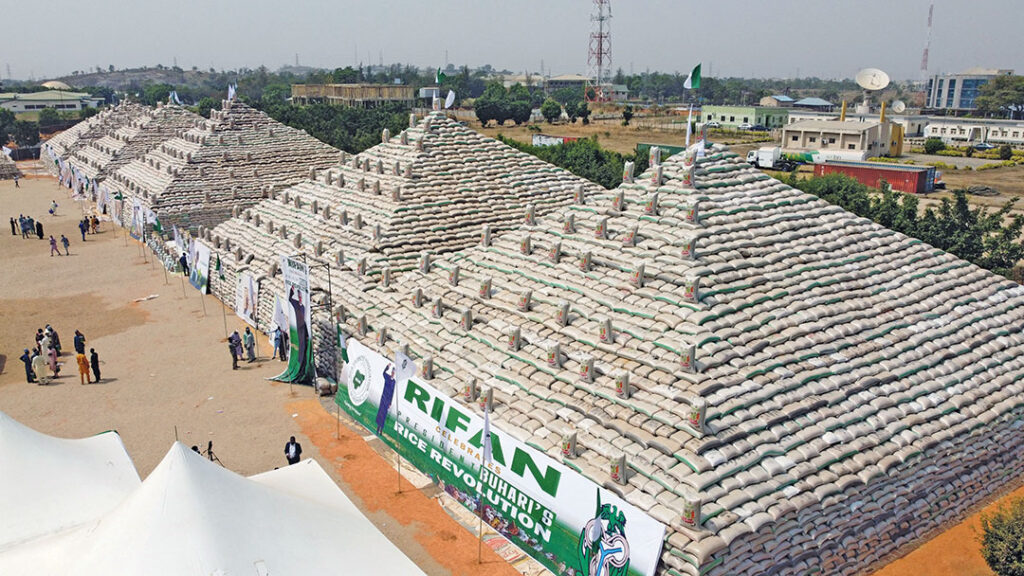ADF STAFF
Nigeria has unveiled what have been described as the “world’s largest rice pyramids,” made with a million bags of rice, in the capital, Abuja.
The temporary pyramids were aimed at showcasing the country’s efforts to boost rice production and to make Nigeria self-sufficient in food.
It was one of the main promises that Nigerian President Muhammadu Buhari made when he took office in 2015.
Nigerian officials said the initiative has sharply reduced Nigeria’s annual rice import bill, from $1 billion in 2015 to $18.5 million in 2021.
The price of rice, a staple food in Nigeria, began to climb when the government closed the Seme border between Nigeria and Benin in August 2019. Nigeria said the decision was to strengthen the agricultural sector and curb extensive smuggling, especially of rice. The border was reopened in December 2020.
The increase in rice production came through the Central Bank of Nigeria’s Anchor Borrowers’ Programme, launched in 2015 to boost agricultural production and reverse Nigeria’s negative balance of payments on food. Buhari said the measure will help reduce rice prices.
“The significance of today’s occasion can be better understood by looking at the various economic strides the administration has achieved through agriculture,” he said, as reported by the Premium Times, Nigeria’s national newspaper.
Rice has a special place in Nigerian culture, with it and other countries in the region boasting that they make the best Jollof rice, a staple at celebrations.

